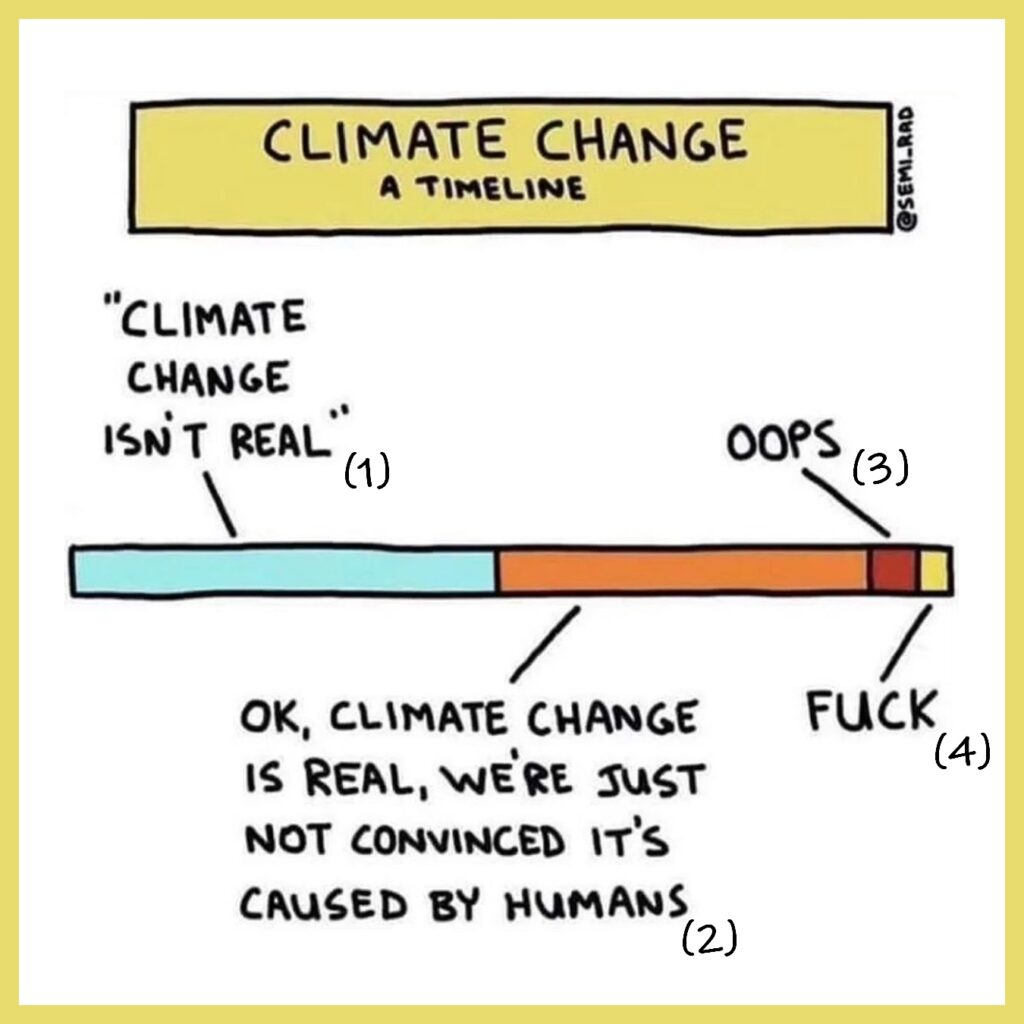It’s pastime more people raised their heads, the Council on Foreign Relations (#CFR), the think tank of the U.S. political establishment, just published a new statement calling for what they call “Climate Realism.”
1.5°C Is Dead – And they admit it, to their credit, CFR doesn’t sugarcoat the situation. They finally acknowledge that the international climate target of limiting warming to 1.5°C is officially dead. The new “realistic” trajectory? 3°C or higher by the end of this century, if not sooner. This isn’t just academic: 3°C means crop failures, mass displacement, geopolitical chaos, collapsing ecosystems, and runaway feedback loops. It’s climate breakdown, not “climate change.”
The #geekproblem tech fix of geoengineering is Plan A to the looming catastrophe, not degrowth, not ending fossil fuel subsidies, not climate justice or ecological transition. They want massive investment in geoengineering, particularly solar radiation management (SRM), basically spraying particles into the stratosphere to dim the sun. Yes, they’re proposing that we hack the planet to protect global capitalism. All while keeping the mess of extraction and inequality running at full speed.
They don’t say anything about system change, their “realism” is not anything to do with reducing global consumption, transitioning away from endless economic growth, or tackling the structural roots of climate collapse.
On this “common sense” #mainstreaming path we are rushing down, the is no interest in real solutions, because real solutions threaten the economic order they live in. They don’t touch on basic climate justice because justice is incompatible with on going imperial hegemony. They don’t mention degrowth because that would shake the foundations of capitalistic economics.
No mention of capitalism, it’s invisible to them, because they are capitalism, thus they are #blind to this.
This is the new fascist #mainstreaming – A doctrine of U.S. climate power, the statement frames climate breakdown as a national security issue, a geopolitical weapon to be wielded by the U.S. state. Let’s be very clear, this isn’t about saving the planet. It’s about maintaining U.S. dominance in a rapidly destabilizing world.
What they do is debunk four liberal “climate fallacies”:
- Global targets are achievable – Not any more.
- China and the Global South are the key battlegrounds.
- Climate risks are manageable – They admit this is fantasy.
- Clean energy is a win-win for the U.S. – Nope. China leads. The U.S. is lagging behind.
Instead, they push a doctrine of planning for collapse with adaptation, disaster readiness, and securing “fiscal room” for emergency responses. Investing in competitive clean tech, not for domestic transition, but to outcompete China in global markets. Leading catastrophic risk mitigation, geoengineering is their “break glass in case of emergency” option. They even float the idea of using economic and military pressure to force other nations to cut emissions.
Climate deterrence is going to be the New Cold War. #CFR now sees climate as a deterrence issue, like nuclear weapons, only with carbon. That’s their vision: a future where the U.S. uses its technological and military edge to impose climate stability through force. This is climate realism in the mess making logic of empire, don’t change course, double down on control.
We are on a path straight to hell, with eyes wide open. This should come as no surprise, ofter the last 20 years of mess building, CFR’s plan is in no way surprising. It’s the logical next step for a system that can’t imagine anything beyond growth, extraction, and domination. In their world, collapse is a management problem, not a moral one.
We should be clear, this is a death march. It’s not “realism”, it’s resignation dressed up as pragmatism. And if we follow them, we’ll arrive exactly where they’re headed, hell, but orderly. We have worshipped this #deathcult for too long.
The new right’s obsession with Greenland and Canada’s north isn’t some fringe fantasy, it’s real estate logic, twisted through a lens of empire and extraction. When you zoom out and frame it through the lens of #climatechaos, it’s chillingly obvious, the Arctic is melting, and they see land, not crisis.
That AlphaGeo link paints the picture, climate-driven migration, shifting growing zones, and emerging “climate havens” aren’t theoretical, they’re data-driven land grabs in progress. And the political ambition to dominate those spaces? That’s the should now be more obvious to us all.
It’s a gold rush for the apocalypse, a final frontier for the capitalist imagination. They aren’t trying to save anything; they’re re-positioning to rule what’s left. And yes, it’s a children-who-want-to-be-kings fantasy: Trump-esque thinking where climate collapse becomes opportunity, borders become walls, and “winning” means inheriting a lifeboat while others drown.
This isn’t climate denial anymore, it’s climate opportunism. That’s why adaptation can’t just be technical, it has to be political. If we don’t shape the future, they are carving it up in plain sight.







